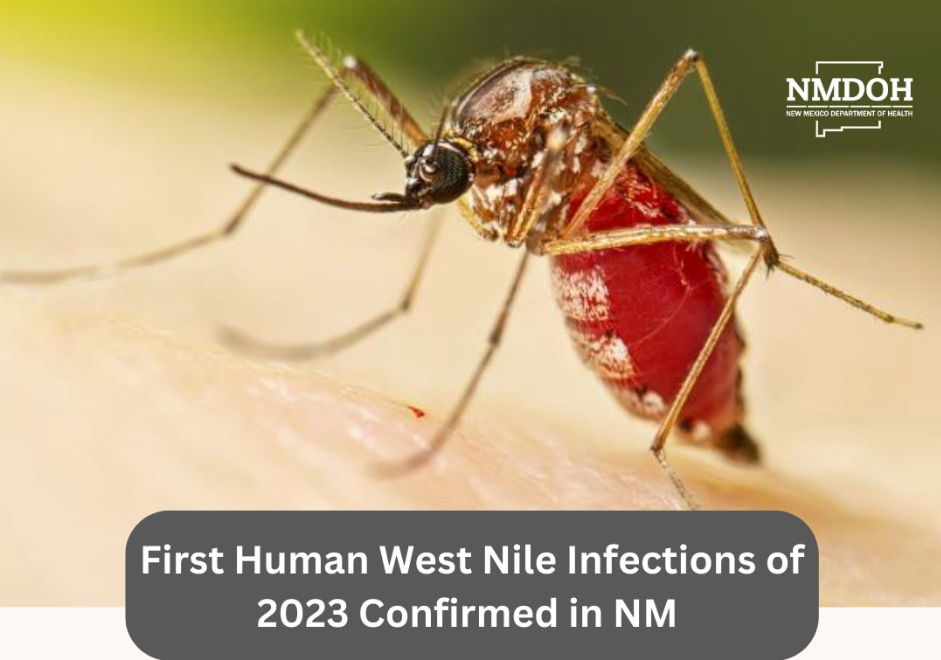
During the last week the New Mexico Department of Health (NMDOH) has confirmed two human cases of West Nile Virus in the state. One of the cases is in Lea County. The other is in Sandoval County. Both infected individuals have been hospitalized and are recovering.
NMDOH also reports that in Sierra County one horse has been infected with the virus. NMDOH on its Facebook page cautions “horse owners to vaccinate their animals to protect them from West Nile virus and Western Equine Encephalitis, which is also carried by mosquitoes.”
What is West Nile Virus?
West Nile Virus is a single-stranded RNA virus, primarily transmitted by Culex – common house – mosquitoes. Symptoms of the disease normally occur in humans and horses and rarely in other animals. The disease was first identified in Uganda in 1937. Later in the 20th century the virus spread to other parts of the world.
Studies have suggested that West Nile, as well as other tropical diseases, may become more prevalent due to the effects of climate change.
Symptoms of the Virus
Symptoms of West Nile Virus include fever, fatigue, headache, muscle and joint aches, as well as nausea and rash. Sometimes these symptoms last for long periods – weeks to months and even to a year or more. The majority of individuals infected recover without hospitalization, states the NMDOH.
Tips To Avoid the Virus
To protect yourself from contracting the virus NMDOH suggests using an FDA-approved insect repellent when going outdoors. NMDOH cautions that when applying the repellent to always follow the instructions printed on the label. According to a KOAT News 7 report, “…approved repellents are those that contain DEET, picaridin, IR3535 and oil of lemon eucalyptus/para-menthane-diol.” The NMDOH also recommends the wearing of long sleeves and pants in the early morning and at dusk “when mosquitoes are most active”.
Other precautionary measures to prevent getting bitten by mosquitoes are to get rid of “water-holding” containers where mosquitoes lay their eggs. Examples of such containers are empty cans, old tires and the like. The public is additionally encouraged to drain water that rests in saucers under potted plants, birdbaths and wading pools and to tightly screen rain barrels.
Of the utmost importance is to only open windows that are tightly screened. Be certain that the screens have no holes.
NMDOH records show that 11 human cases of the virus were reported in New Mexico in 2022. Two deaths resulted. The public is reminded that the disease should be taken seriously.


